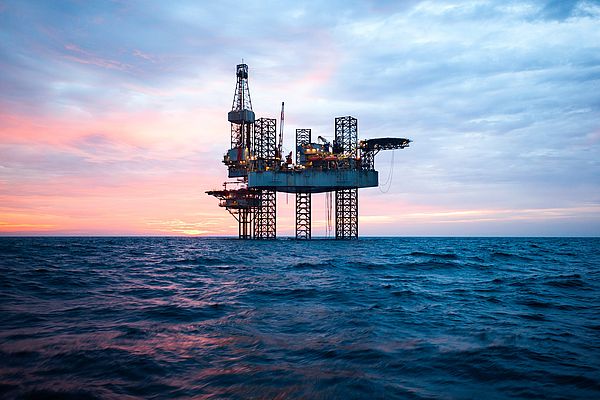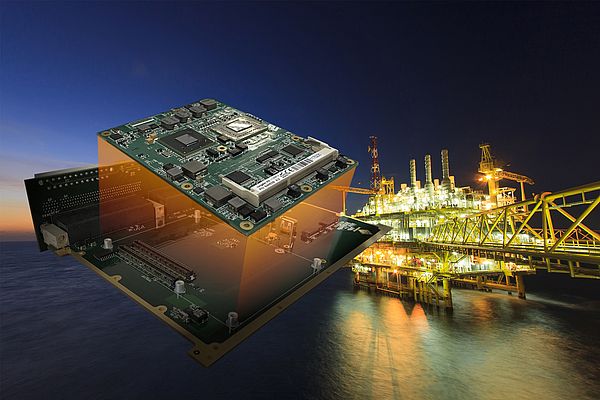The offshore energy industry, whether it is oil and gas or offshore wind, is one underpinned by remote and distributed assets, critical operations and harsh environments. As such, it’s one of the prime sectors to benefit from digitisation and embedded technologies to support improved maintenance and monitoring.
Martin Frederiksen (MF), managing director of offshore embedded computing expert Recab UK, and Diethard Fent (DF), manager sales partner EMEA at global computer-on-module technology leader congatec, about how the offshore industry is embracing digitisation.
PCN Europe: Where are the main application areas for embedded systems in the offshore industry?
MF: The nature of all offshore operations lends itself well to the potential benefits of embedded computing and digitisation. Interestingly, one of the areas where we at Recab UK have seen a lot of projects recently is in offshore wind generation. Wind farms are high-tech and are an ideal Internet of Things (IoT) use case. Only last year, a report commissioned by the UK’s Offshore Renewable Energy (ORE) Catapult highlighted the offshore wind sector as lagging behind in adoption and understanding of digital technologies. We’re certainly seeing evidence that operators are now addressing that and investing in edge servers for remote monitoring and predictive maintenance.
We also see projects for mapping the seabed using lidar scanners and/or cameras, often involving unmanned aerial vehicles (UAVs). When using UAVs, the ability to process the data as effectively as possible is very important. We also have more traditional projects for ships, either for navigation or for transmitting data. The value of embedded systems and digitisation truly spans all offshore operations.
The key with each of these projects is to consider the environmental conditions, which is arguably the biggest challenge for the development of embedded computing in offshore environments. These systems need to be IEC 60945 compliant, IP67 rated to protect against salt mist and water ingress and able to operate in a wide range of temperatures and pressures. Subsea projects in the North Sea, for example, will need to function effectively in the very low temperatures, as well as subsea pressure changes.
PCN Europe: Why are more businesses in this space turning to embedded solutions?
DF: The International Energy Agency estimates that digitisation can reduce production costs in the oil and gas sector by up to 20 percent. According to auditing and consulting firm PWC, there is great potential for savings through more efficient maintenance and better operation of assets.
Both the upstream and midstream oil and gas sectors, for example, are characterised by distributed assets and infrastructures in harsh environments. They therefore require ultra-robust embedded platforms for the digital transformation challenge that offers a huge potential for cost savings.
There is also further potential for savings in the supply chain, through the use of artificial intelligence and integrated platforms that connect organisations with external partners.
MF: By digitising these processes, companies in the upstream and midstream sector can potentially save up to $1 trillion in capital and operating costs. Realising this potential requires extremely robust embedded edge server technologies, such as those offered by congatec. Recab UK’s IoT and solution-ready system platforms for solution providers, system integrators and end users are based on these technologies.
PCN Europe: How do you support offshore and oil and gas companies?
DF: In late 2019, congatec introduced a new rugged class of embedded edge server technologies designed for the digitisation of the upstream and midstream oil and gas industry. The new embedded edge computing platforms are designed for extended temperature ranges, with optional conformal coating to protect against the effects of salt water or condensation caused by large temperature fluctuations.
“In addition, they offer comprehensive server class RAS (reliability, availability, serviceability) features that enable OEMs to dependably manage thousands of devices remotely. As multicore designs with currently up to 6 cores and a particularly low 25W TDP, they are suitable for completely fanless and therefore maintenance-free 24/7 operation in hermetically sealed housings with the highest IP protection classes.
MF: For us, we support with our expertise and experience in embedded edge technologies for harsh environments. We have been able to assist in several maritime projects where there is a need for an IEC 60945 compliant computer that is IP67 rated and resistant to salt mist. The sea is not the best environment for a computer and therefore a lot precautions are necessary for a computer to keep functioning for many years.
We are mainly supporting the offshore business with our baseboard solutions for our COMexpress modules. These projects can be in a variety of applications, like remote operated vehicles (ROVs) for transmitting data from cameras or lidars to process the data before it is sent to the main server. It can also be controlling the sensors in an offshore wind turbine.
In recent years, the oil and gas industry has reduced its staff and therefore some companies either do not have the in-house competence or do not have the time to do the development themselves and therefore they turn to us for a helping hand.
The number of units needed in the offshore business is usually small- to mid-size volumes, which is where it makes sense to work with a company like Recab UK. It is also a sector that is heavily regulated and that appreciates close contact and cooperation with the developing party.
The potential benefits of digitisation in the offshore industry are clear: reduced production costs, improved maintenance efficiency and lower capital expenditure. As more offshore companies move to digitise their processes and operations, choosing the right technologies and system partners will prove essential to success.


















